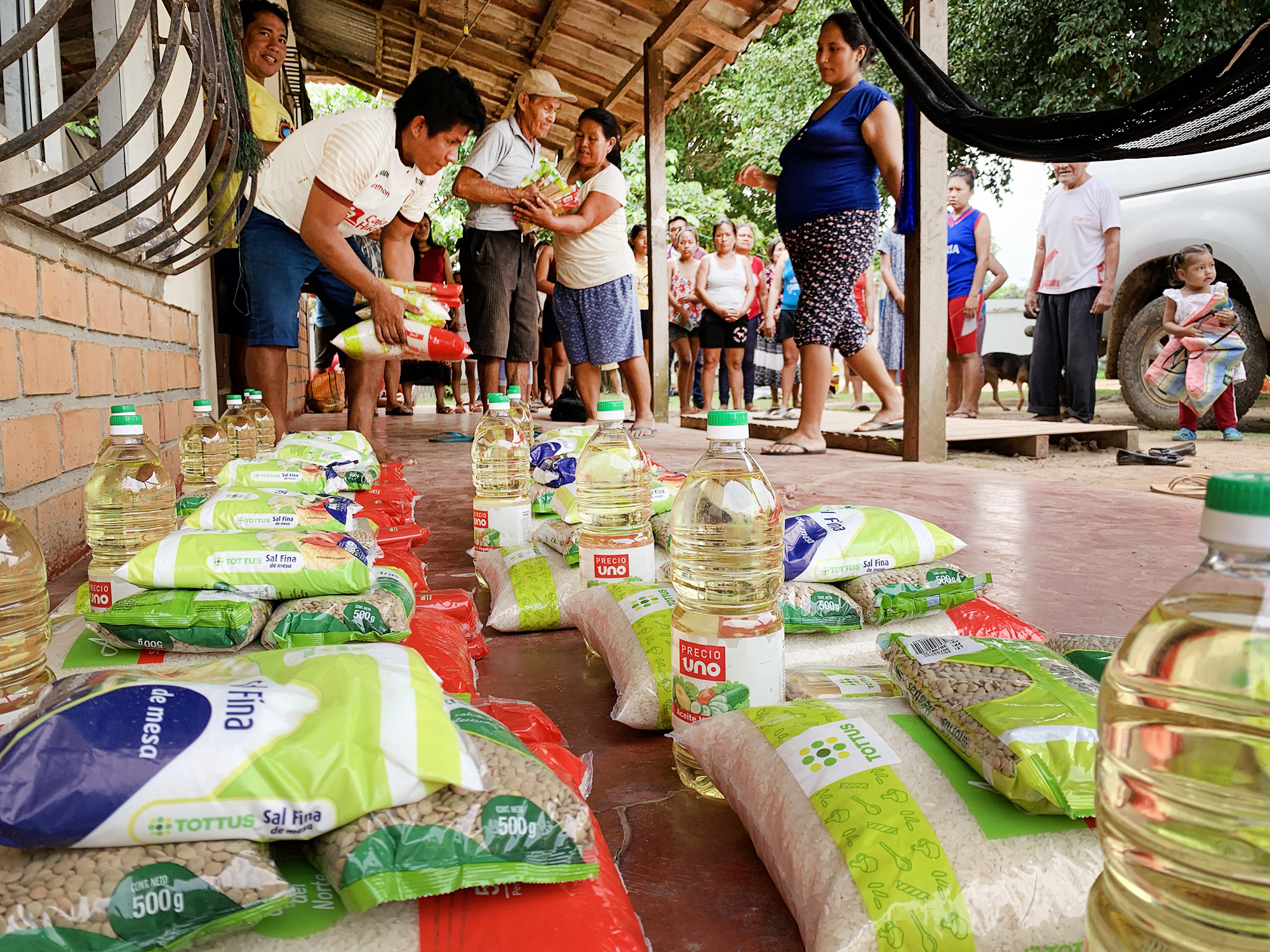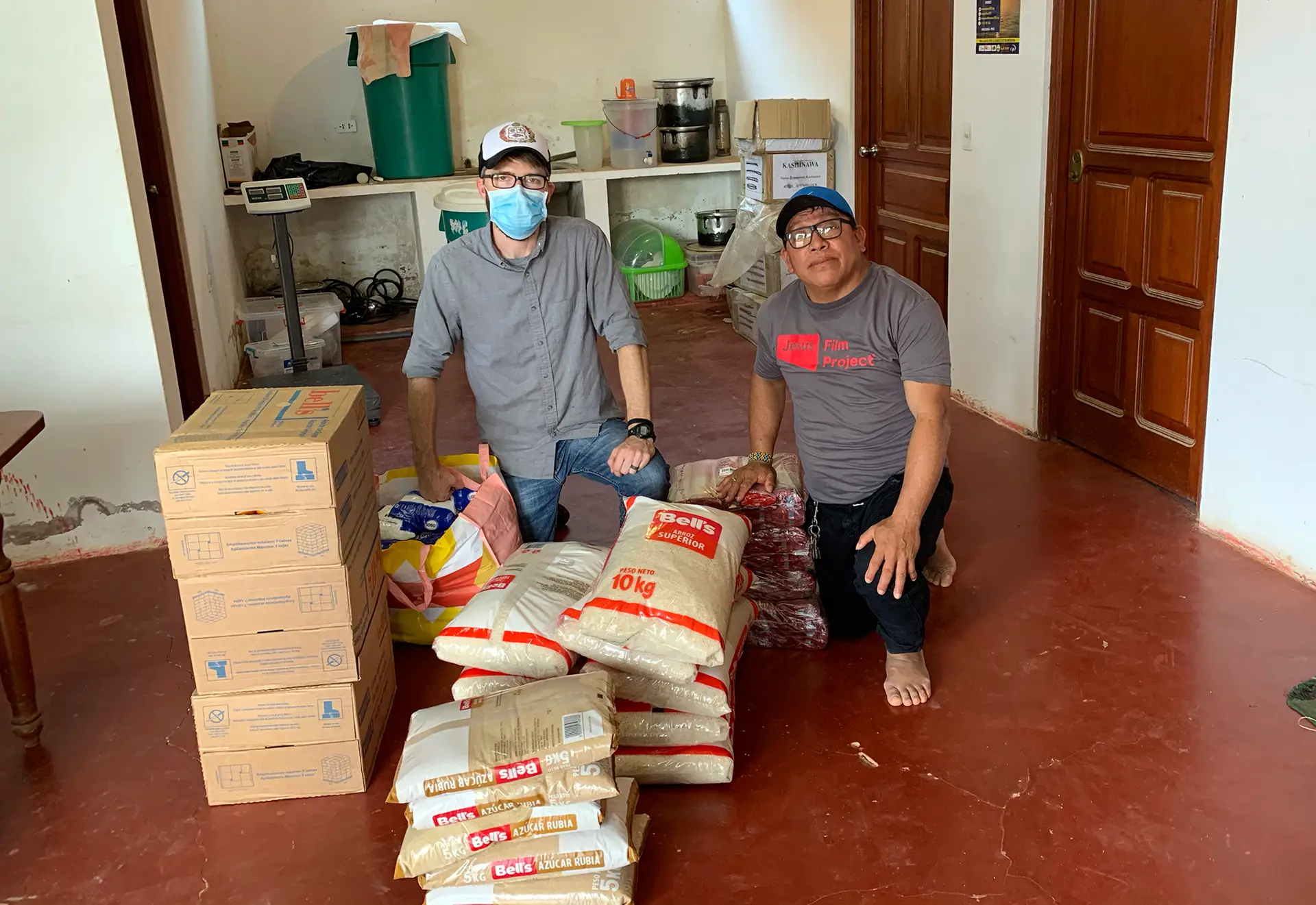ALPHARETTA, Ga. (BP) — As COVID-19 started becoming a global pandemic, Send Relief staff began making preparations around the world to serve communities they knew would be hit hard by the medical and economic impact of the virus.
Missionaries and volunteers in North America have helped distribute nearly 50,000 various types of personal protection equipment to medical facilities and provided more than 66,000 meals in New York City, New Orleans, Pittsburgh and Puerto Rico, as well as thousands of care packages for healthcare workers and first responders.
Internationally, Send Relief has dozens of projects related to COVID-19 in more than 40 nations around the globe. Through Send Relief, International Mission Board (IMB) missionaries have been providing medical and sanitary resources as well as food to under-resourced areas.
“The scope of Send Relief’s work on COVID-19 projects around the world is amazing — not only here in the U.S. but in 45 nations around the world and over 140 ongoing ministry projects,” said Bryant Wright, president of Send Relief. “It has been a joy to get to know our Send Relief staff as the international and national efforts are working closely together.”
The North American Mission Board (NAMB) and the IMB announced plans to cooperate in compassion ministry efforts just weeks before the coronavirus pandemic became an international crisis.
Several hospitals and healthcare facilities in villages and towns across Africa, Asia, Europe and the Americas have received personal protection equipment, sanitary cleansers and supplies of oxygen through Send Relief partners, aiding their ability to better care for critically ill patients.

Send Relief has worked around the world to coordinate food and supply distributions to overlooked populations, including remote villages and regions that have not received the same support as many urban areas.
Refugees who fled their homes due to violence, natural disasters or other causes of instability lost their sources of food and sanitary items once COVID-19 began affecting their communities. Send Relief has helped support food distributions for thousands of refugees.
In the United States, which has the highest number of confirmed coronavirus cases and deaths, Send Relief efforts have focused on serving vulnerable populations and the healthcare workers and first responders on the frontlines of the pandemic.
Taylor Field, a Send Relief missionary in New York City, which is the epicenter in the U.S., has supported those with food insecurity for many years. Field knew that, though the strategy would need to change to adhere to guidelines for social distancing, he would continue reaching out to and serving in the midst of the crisis.
“We have had to streamline the numbers of volunteers and aim for only five volunteers to be in a room,” Field said. “Since our ministry is considered by the city as essential services, volunteers are still able to come to serve.”
Volunteers there are wearing masks and teaching those who come for food about social distancing and other hygiene practices designed to help at-risk populations combat COVID-19.
Similar outreaches have been taking place across the United States through Send Relief, resulting in thousands receiving services; many are hearing the Gospel. Missionaries are building relationships with those in their communities that should last over the long term.
“A nurse from University Medical Center sent me a text after we dropped off care bags for the healthcare workers,” said Kay Bennett, a Send Relief missionary in New Orleans. “She had given the care packs to all the units and had even shared some with the cafeteria workers. She shared how thankful they all were and how encouraging it is to know that people care about them and are thinking of them.”
As Send Relief continues and expands its efforts to serve those most affected by the COVID-19 crisis, Southern Baptists can get involved, either by serving their communities using the ministry guides Send Relief offers through its website or by donating financial resources to help fuel the work of national and international missionaries.
This article was originally published by Baptist Press at bpnews.net

